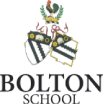Bolton School responded proactively to the global discussion sparked by the Black Lives Matter (BLM) movement in June 2020 and following an open letter written by a group of Alumni and other members of the School community, who urged the School to review and improve its practices and to make a sustained commitment to anti-racism.
Since then, we have been engaging with our stakeholders and making plans to implement suggestions through meaningful short-term and long-term actions. We continue to promote diversity and inclusion, which are integral to the aims and values of the Foundation.
Diversity, Equity and Inclusion (DEI) Reports
Bolton School committed to compiling a series of annual Diversity, Equity and Inclusion (DEI) Reports after the death of George Floyd and the testimonies published by Everyone’s Invited, events that prompted many schools and institutions to re-examine their approaches to inclusion and diversity.
As a result of its focus during the five-year period following his death, Bolton School better integrated DEI into learning across the campus and, where appropriate, partnered with external agencies, working constructively with its former pupils in ensuring that its actions have been proactive, sustained and meaningful. The Girls’ Division, Boys’ Division and Junior Schools were all commended on their inclusivity and approach to DEI in inspection reports during this period.
As it focuses on the next five years, the School - through a DEI committee - will continue to monitor diversity, equity and inclusion across all its settings, ensuring the changes it has made remain embedded in the School’s culture and practices.
Read the DEI Reports:
The Legacy of Lord Leverhulme
Many Alumni have written to School asking how we might best think now about Lord Leverhulme, when the past of so many of his generation has been brought into sharp focus by the Black Lives Matter movement. The school is strongly committed to telling the story of the past in a context that helps shape the future.
In thinking about William Lever it is impossible not to see a man of action. He was decisive, opinionated and determined; a man to get things done and, very often, keen on having them done in a way he felt was right. He was also at the forefront of very many of the issues of his day and it is clear he did not always come out ahead. A keen supporter of the suffragette movement, he had his bungalow burnt down by suffragettes. A philanthropic supporter of Bolton, where he served as Mayor, he had his plans for a grand boulevard turned down. This enormous energy was accompanied by strong values. The book ‘Leverhulme’s Legacy’, quotes: ‘his father, James, had a deep concern for the spiritual and material improvement of the communities in which they lived and these values inspired William.’
So how, we might ask, did the boy inspired by these values become the man whose statue at Port Sunlight was on the list to be toppled at the height of the Black Lives Matter protests?
To answer this question, it is useful to compare three of Lever’s great social projects: the Congo, the Hebrides and the Wirral. In each of these, in very different social settings, Lever very clearly brings the same idea: to provide social infrastructure in return for labour in a well organised industrial process.
In the Congo in the early 1900s, this work included forced labour in palm oil plantations, as well as the housing, hospitals and schools he built in the eponymous town of Leverville, which is now Lusanga.
In the northern Isles of Lewis and Harris, Lever sought to mechanise and improve the fishing industry, once again investing in social infrastructure – there is still a place called Leverburgh.
Closest to home, on the Wirral, there is Port Sunlight, where he built housing for the workers in his soap factory.
In each case there is the good intent of social change. We cannot judge the past in terms of the present. We can more successfully think how the character of someone from the past might have been shaped and act in the present. I firmly believe that in the present age Lever, in his time active for the rights of women in democracy, would have been at the forefront of ensuring better social conditions and would himself be appalled by a past age who found forced labour acceptable.
There is another message for those of us at Bolton School, who are associated with Lever and wish to celebrate and learn from his life.
Port Sunlight was arguably the most successful of all his social projects. It is likely that this was because Port Sunlight was a new venture: soap manufacture was novel and Lever was not replacing a way of life but inventing it. In contrast, in the Congo and Scotland people had harvested and fished for generations. Lever was replacing their way of life and the changes, even if meant to be for the better, were imposed upon the community. My guess is Lever himself, if we could talk today, would draw similar life lessons from his many experiences in a busy, eventful and productive life.
The Foundations’ aim is to shape girls and boys who will ‘go out and make a difference for good’. What we learn from our Founder is that you cannot do good to people, by imposing, however well intentioned. You can only do good with people, understanding their way of life, their thoughts and their needs.
How much more productive in our present age to think about what the past means for the present than to judge. After all, what will the future think of us?
Philip Britton
Head of Foundation


